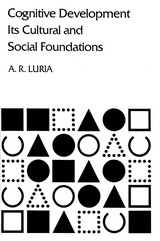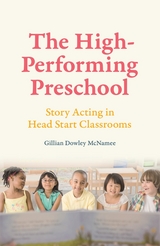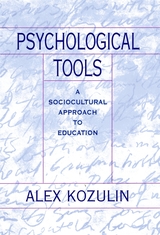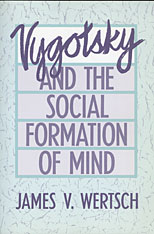
Alexander Romanovich Luria, one of the most influential psychologists of the twentieth century, is best known for his pioneering work on the development of language and thought, mental retardation, and the cortical organization of higher mental processes. Virtually unnoticed has been his major contribution to the understanding of cultural differences in thinking.
In the early 1930s young Luria set out with a group of Russian psychologists for the steppes of central Asia. Their mission: to study the impact of the socialist revolution on an ancient Islamic cotton-growing culture and, no less, to establish guidelines for a viable Marxist psychology. Lev Vygotsky, Luria's great teacher and friend, was convinced that variations in the mental development of children must be understood as a process including historically determined cultural factors. Guided by this conviction, Luria and his colleagues studied perception, abstraction, reasoning, and imagination among several remote groups of Uzbeks and Kirghiz—from cloistered illiterate women to slightly educated new friends of the central government.
The original hypothesis was abundantly supported by the data: the very structure of the human cognitive process differs according to the ways in which social groups live out their various realities. People whose lives are dominated by concrete, practical activities have a different method of thinking from people whose lives require abstract, verbal, and theoretical approaches to reality.
For Luria the legitimacy of treating human consciousness as a product of social history legitimized the Marxian dialectic of social development. For psychology in general, the research in Uzbekistan, its rich collection of data and the penetrating observations Luria drew from it, have cast new light on the workings of cognitive activity. The parallels between individual and social development are still being explored by researchers today. Beyond its historical and theoretical significance, this book represents a revolution in method. Much as Piaget introduced the clinical method into the study of children's mental activities, Luria pioneered his own version of the clinical technique for use in cross-cultural work. Had this text been available, the recent history of cognitive psychology and of anthropological study might well have been very different. As it is, we are only now catching up with Luria's procedures.

McNamee outlines how story acting cultivates children’s oral and written language skills. She shows how it creates a crucial opportunity for teachers to guide children inside the interior logic and premises of an idea, and how it fosters the creation of a literary community. Starting with Vygotsky and Paley, McNamee paints a detailed portrait of high-quality preschool teaching, showing how educators can deliver on the promise of Head Start and provide a setting for all young children to become articulate, thoughtful, and literate learners.

The concept of "psychological tools" is a cornerstone of L. S. Vygotsky's sociocultural theory of cognitive development. Psychological tools are the symbolic cultural artifacts--signs, symbols, texts, formulae, and most fundamentally, language--that enable us to master psychological functions like memory, perception, and attention in ways appropriate to our cultures. In this lucid book, Alex Kozulin argues that the concept offers a useful way to analyze cross-cultural differences in thought and to develop practical strategies for educating immigrant children from widely different cultures.
Kozulin begins by offering an overview of Vygotsky's theory, which argues that consciousness arises from communication as civilization transforms "natural" psychological functions into "cultural" ones. He also compares sociocultural theory to other innovative approaches to learning, cognitive education in particular. And in a vivid case study, the author describes his work with recent Ethiopian immigrants to Israel, whose traditional modes of learning were oral and imitative, and who consequently proved to be quick at learning conversational Hebrew, but who struggled with the reading, writing, and formal problem solving required by a Western classroom. Last, Kozulin develops Vygotsky's concept of psychological tools to promote literature as a useful tool in cognitive development.
With its explication of Vygotsky's theory, its case study of sociocultural pedagogy, and its suggested use of literary text for cognitive development, Psychological Tools will be of considerable interest to research psychologists and educators alike.

Is a human being a person or a machine? Is the mind a social construction or a formal device? It is both, William Frawley tells us, and by bringing together Vygotsky's sociocultural theory of the mind and cognitive science's computational model, he shows us how this not only can but must be. To do so, Frawley focuses on language, particularly on how the computational mind uses language to mediate the internal and the external during thought. By reconciling the linguistic device and the linguistic person, he argues for a Vygotskyan cognitive science.
Frawley begins by exploding the internalist/externalist dichotomy that presently drives cognitive science and falsely pits computationalism against socioculturalism. He replaces the reigning Platonic paradigm of computational mind-science with a framework based on an unusual, unified account of Wittgenstein, thus setting the stage for a Vygotskyan cognitive science centered on three aspects of mind: subjectivity, real-time operation, and breakdown. In this context, he demonstrates how computational psychology accommodates a critical aspect of Vygotskyan theory--private speech--as the mind's metacomputational regulator. An examination of certain congenital disorders (such as Williams Syndrome, Turner Syndrome, and autism) that disrupt speech further clarifies the issue of computational and cognitive control.

In a book of intellectual breadth, James Wertsch not only offers a synthesis and critique of all Vygotsky’s major ideas, but also presents a program for using Vygotskian theory as a guide to contemporary research in the social sciences and humanities. He draws extensively on all Vygotsky’s works, both in Russian and in English, as well as on his own studies in the Soviet Union with colleagues and students of Vygotsky.
Vygotsky’s writings are an enormously rich source of ideas for those who seek an account of the mind as it relates to the social and physical world. Wertsch explores three central themes that run through Vygotsky’s work: his insistence on using genetic, or developmental, analysis; his claim that higher mental functioning in the individual has social origins; and his beliefs about the role of tools and signs in human social and psychological activity Wertsch demonstrates how the notion of semiotic mediation is essential to understanding Vygotsky’s unique contribution to the study of human consciousness.
In the last four chapters Wertsch extends Vygotsky’s claims in light of recent research in linguistics, semiotics, and literary theory. The focus on semiotic phenomena, especially human language, enables him to integrate findings from the wide variety of disciplines with which Vygotsky was concerned Wertsch shows how Vygotsky’s approach provides a principled way to link the various strands of human science that seem more isolated than ever today.

Alex Kozulin, translator of Vygotsky's work and distinguished Russian-American psychologist, has written the first major intellectual biography about Vygotsky's theories and their relationship to twentieth-century Russian and Western intellectual culture. He traces Vygotsky's ideas to their origins in his early essays on literary criticism, Jewish culture, and the psychology of art, and he explicates brilliantly his psychological theory of language, thought, and development.
Kozulin's biography of Vygotsky also reflects many of the conflicts of twentieth-century psychology--from the early battles between introspectionists and reflexologists to the current argument concerning the cultural and social, rather than natural, construction of the human mind.
Vygotsky was a contemporary of Freud and Piaget, and his tragically early death and the Stalinist suppression of his work ensured that his ideas did not have an immediate effect on Western psychology. But the last two decades have seen his psychology become highly influential while that of other theoretical giants has faded.
READERS
Browse our collection.
PUBLISHERS
See BiblioVault's publisher services.
STUDENT SERVICES
Files for college accessibility offices.
UChicago Accessibility Resources
home | accessibility | search | about | contact us
BiblioVault ® 2001 - 2024
The University of Chicago Press









